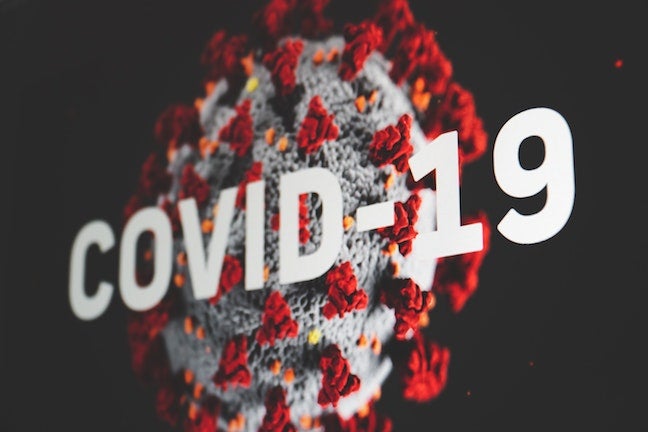Health officials remain uncertain about the future of COVID
Published 11:12 am Thursday, October 7, 2021

- Coronavirus (Photo: Martin Sanchez | UNSPLASH)
COVID-19 cases and hospitalizations are decreasing nationally and signal to many a certain end, but health officials say the coronavirus is too unpredictable for a solid conclusion as long COVID poses a new issue.
The Mississippi State Department of Health reported 1,112 more cases of COVID-19, 10 deaths, and 63 ongoing outbreaks in long-term care facilities. The state has a total of 493,670 cases and 9,778 deaths, and 1,328,703 persons have been fully vaccinated.
Lafayette County has 11 more cases of COVID-19. There have been no reports of deaths or LTC facility outbreaks. The county has a total of 8,373 cases, 137 deaths, 199 LTC facility outbreaks and 56 LTC facility deaths.
Researchers have suggested the COVID-19 pandemic is occurring in a two-month wave, but it’s not a reproducible situation, said Dr. Stephen Threlkeld, Baptist Medical director of infectious disease. Cases are falling in places with majorly vaccinated populations and majorly unvaccinated populations, which causes some uncertainty.
“The virus does what it wants to do,” said Threlkeld. “We have significant impact on that by our behaviors, by our vaccine percentages and the like, but there are some things that the virus does that we just don’t have as much control over and aren’t able to predict.”
Although Threlkeld hesitates to give any absolutes, he said there is a reason for the public to be optimistic.
“We have no Delta [variant] on our horizon like we did before,” he said. “There’s no clear cut, more contagious, more dangerous variant that is sitting there at our doorstep waiting to invade when we let our guard down.”
Threlkeld hopes the affects of the virus and Delta variant will prove to be less severe as time passes as he does not see the variant becoming increasingly contagious. More resistant variant of the coronavirus are a possibility, but there are no numbers to suggest this is an actuality.
“It certainly has the capacity to be more resistant to our immunity and that’s where we have to keep an eye on things,” said Threlkeld. “There’s a question of if we need a mutant or variant vaccine out there and we very well might.”
If vaccination rates continue to increase along with the possible approval of vaccinations for children under 12 and the continued practice of COVID-19 safety regulations, Threlkeld said the holiday season could be relatively normal.
According to Threlkeld, vaccinations will prove to be an important factor in preventing death and long COVID, symptoms that persist for an extended period of time after infection. Threlkeld responded to evidence that one of those symptoms may include diabetes.
Recently, health officials and researchers are exploring the coronavirus and the increasing number of infected patients with diabetes. Recent research shows COVID-19 can infect insulin-producing cells in the pancreas and change their function, potentially explaining why some previously healthy people develop diabetes after catching the virus.
Threlkeld has witnessed patients with severe acute diabetic symptoms, with very high glucose readings and no history of diabetes in their medical history.
“It’s a very, very interesting and somewhat disturbing tendency,” said Threlkeld. “[It’s] way too early to really talk about a causative relationship just yet.”





